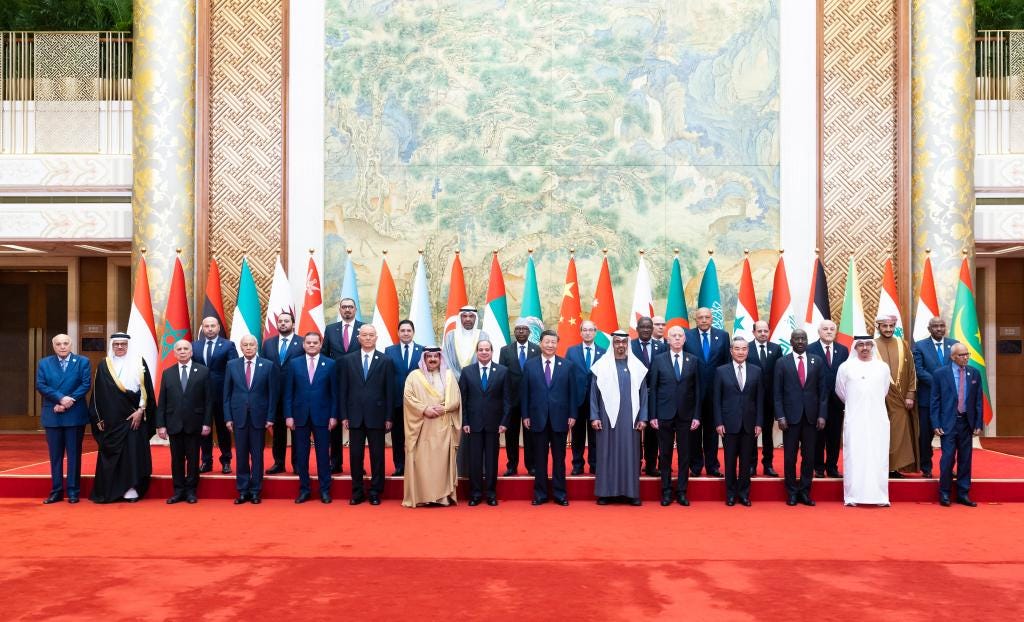China and Arab States hold conference
The building of a China-Arab community with a shared future
Since the 1990s, China has been developing mutually beneficial economic and cultural relations with Arab countries, a process that has intensified in the last ten years. China offers to the oil-rich Arab countries a large market for their oil exports. At the same time, China has the economic capacity and the political will to support the diversification and modernization of Arab economies, which is increasingly understood by Arab governments as necessary for sustained economic growth and political stability.
In accordance with these tendencies, the first China-Arab States Summit and the first China-Gulf Cooperation Council Summit were held in Saudi Arabia on December 9, 2022. See my previous commentary on the events.
China will host the second China-Arab States Summit in 2026.
“China and the Arab world: The land of the Prophet embraces the wisdom of the East,” December 13, 2022



